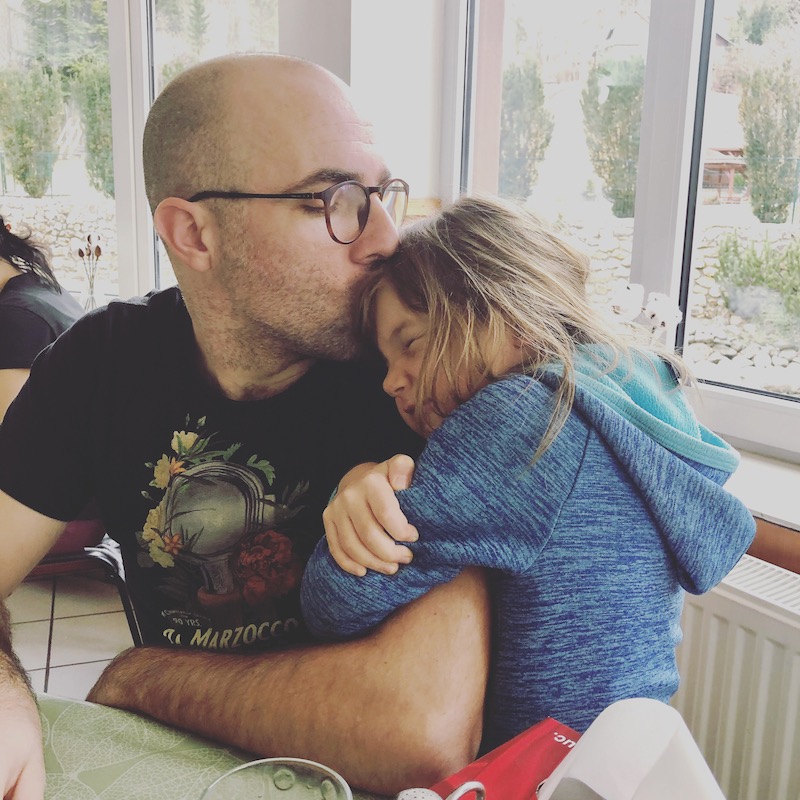My mom had a clear understanding of sin as I was growing up. I talk about her boundaries and intuitive parenting skills, but they all boil down to her ability to distinguish sin. In her own life first and foremost. Her ability to live by grace and in consequence extend it to us. But I mostly loved the sense of freedom I saw in her when she took responsibility for stuff, apologized or admitted she might be wrong, trying to understand better.
In my humble opinion, she hacked parenting (and she doesn’t even know it), because of her courage to call out sin in her and us, before sin took roots.
It’s the beginning of February. It has been a rough season, not for the usual, classic or old reasons.
These months, tiresome parenting brought out in us the unkind, the impatient, the ungracious, the ugly. As a chain reaction. I could list here all the valid excuses, but the truth is that we got comfortable with sin and found different names for it to make it acceptable, or at least justified.
I let myself go. I let my joy go. We drifted away. Even if just a bit, I feel it.
In over a decade of cohabitation and serving, of attentiveness to the other’s need, while it has been one to one, it was manageable and mutual. I‘d tell you that we had realistic expectations of human nature, of sinfulness, of selfishness… and we raced in loving each other in meaningful ways.
But at some point circumstances have changed. Becoming parents. And after a year or two we let our guard down.
My husband feels responsible to correct and educate our daughter, in propriety, manners, and self-awareness. All good things in essence, but all these are subjective. So I started to correct him with the same tone or attitude, as a gut reaction, like putting up mirror. I pointed out his idiosyncrasies, things that didn’t bother me before. His impatience with our daughter made me pick apart his shortcomings. Lack of grace begets lack of grace. I’m not justifying myself. Because it backfired worse. He didn’t correct his habits (because that’s a huge mountain to climb in and of itself) but he started pointing my idiosyncrasies. Within a few months, on a bad day, when everyone was tired, our otherwise warm and easily accepting home not long ago, felt emotionally toxic. Like spurs of darkness on a sunny summer day. Unkindness is corrosive. Disrespect is literally destructive.
I had reached my rock bottom a day or two before going to Brasov. And we had a come to Jesus talk, after putting Jackie to bed. Just last Thursday.
After addressing all the circumstances (attenuating or damning), calling them out, feeling embarrassed on a few occasions in the company of friends, maybe it was a book or simply the Spirit that made it clear that our Theology is shaky and unclear.
In his lovingly appeasing manner, my husband asked me how I want to be loved. But I didn’t have an answer this time. Actually I did, but not the blueprints he expected. I asked him to reconnect to the Vine. To ask God to show Him how to love me. Because that I can’t tell him at this time. He needs to hear not from me where we’ve strayed from the path of and how he could truly love me.
I’m not a typical wife. I don’t care about gifts. I don’t care so much for physical touch. I don’t crave words of affirmation, and lately not even acts of service. I probably take for granted all the quality time we spend together. Because what I want is to see my husband passionate about God, to feel him wrestle with the Truth, and to witness the expression of his personal relationship with our Father, Redeemer and Righteous God, Holy and Loving.
Then today I stumbled upon this brilliant quote in a brilliant book called When sinners say “I do” by Dave Harvey. I must have read it a long time ago. But after our conversation on Thursday I felt compelled to honestly face the Truth, desiring understanding. We didn’t let it go too far. There is hope and joy in changing our ways. Admitting our sin. Repenting. Seeing as losing ourselves while staying home is a real danger.
John MacArthur
Christians are rapidly losing sight of sin as the root of all human woes. And many Christians are explicitly denying that their own sin can be the cause of their personal anguish. More and more are attempting to explain the human dilemma in unbiblical terms: temperament, addiction, dysfunctional families, the child within, codependency, and a host of other irresponsible mechanisms promoted by secular psychology.
The potential impact of such a drift is frightening:
– Remove the reality of sin, and you take away the possibility of repentance.
– Abolish the doctrine of human depravity and you void the divine plan of salvation.
– Erase the notion of personal guilt, and you eliminate the need for a Savior.

